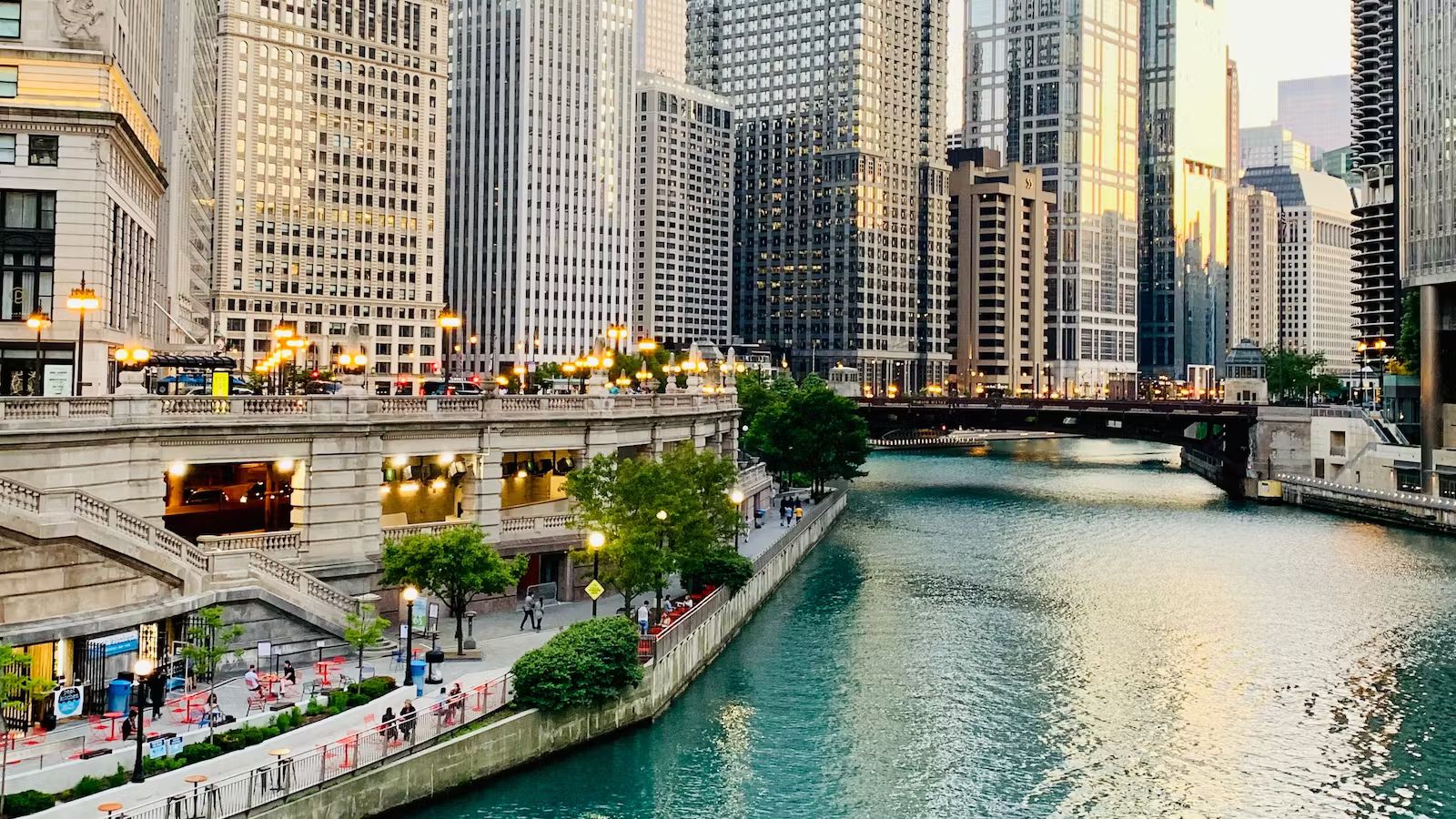Limited Time Offer: Get $100 Off Per Container
About Chicago, IL
Chicago’s metro area includes roughly 10 million people and is a critical hub in the shipping container market due to its strategic location at the intersection of major rail & highway systems. Hosting more than 400 corporate headquarters, Chicago dominates North America’s largest intermodal container market, where all containers move via rail or truck. About 25% of U.S. freight trains and half of all intermodal trains pass through the region.
Chicago connects goods from major U.S. ports like Los Angeles, New York, New Jersey, Savannah, and Houston to inland markets and export terminals. With the area serving as a transportation nucleus for North America. The city hosts the largest intermodal container transfer facility in North America, making it the top U.S. hub for rail freight volume. Imports, especially from Asia, typically arrive at West Coast ports and are transferred via rail to Chicago, where they are sorted and shipped to their final destinations across the Midwest and East Coast.
Exports to include agricultural products (corn, soybeans, wheat), machinery, and chemicals flow out through the same channels. Chicago’s robust warehousing infrastructure, freight-forwarding services, and proximity to major manufacturers and consumers make it a backbone of U.S. supply chains and a crucial inland market for global commerce.
This makes Chicago the top U.S. hub for transferring, sorting and storage of imports and exports. With its vast industrial relationships, combined with proximity to major manufacturers and consumers, solidify Chicago’s role as a vital inland logistics artery and a backbone of global and domestic supply chains. As a result, used shipping container inventory in the Chicago area is primarily healthy. The area is rarely out of stock of 20ft, 40ft and 40ft HC containers.
Industry Snapshot for Chicago, IL
Population
The Chicago metro area (Chicagoland) had a population of approximately 9.4 million as of the 2024 U.S. Census Wikipedia.
Major Employers
Amazon, Advocate Aurora Health, Northwestern Memorial HealthCare, University of Chicago, Walmart, Walgreens Boots Alliance, United Airlines, Kraft Heinz, McDonald's, and Sears.
Imports & Exports
- The region plays a major role in international trade, serving as the corporate headquarters for roughly 400 corporations.
- It serves as North America’s largest intermodal container market. Containers in this market move via rail or truck.
- Approximately 25% of all U.S. freight trains and 50% of all intermodal trains pass through the Chicago region, making it one of the most critical freight hubs in the nation World Business Chicago.
Intermodal System
Chicago stands out as a premier intermodal transportation hub, integrating:
- Extensive rail networks, including involvement with all six Class I railroads.
- O’Hare International Airport, a global aviation hub and major cargo gateway.
- Road infrastructure with interstates: I-90, I-94, I-55 and I-80.

What We Love About Chicago, IL
One of the coolest towns in the US and host to an array of industries and corporations, Chicago, IL has a lot going on. A vibrant and diverse city with a healthy cultural scene, it’s no wonder it’s the 3rd most populated city in North America and the largest city in the Midwest. Nicknamed the “Windy City” it’s a good thing our decommissioned shipping containers are guaranteed to be wind & watertight because winters here are not for the faint of heart.
A hard-working town, Chicago is known for manufacturing, transportation, and freight industries as well as rapid sports fans. And while sports teams may sometimes tear friends apart, the roadways and railroads are a vital part of connecting businesses with their customers and moving goods across the country. The Port of Chicago consists of several major port facilities within the city of Chicago, Illinois, and is responsible for more than $81 billion (about $250 per person in the US) of manufactured goods, $37 billion in agricultural products, and $18 billion (about $55 per person in the US) chemical products annually.
When the pandemic hit, it forced people and businesses to pivot...fast. None evolved quicker than the international shipping container modular gym company The Gym Pod of Chicago, IL. Chuck out their Fulton Market local for a unique workout experience.

